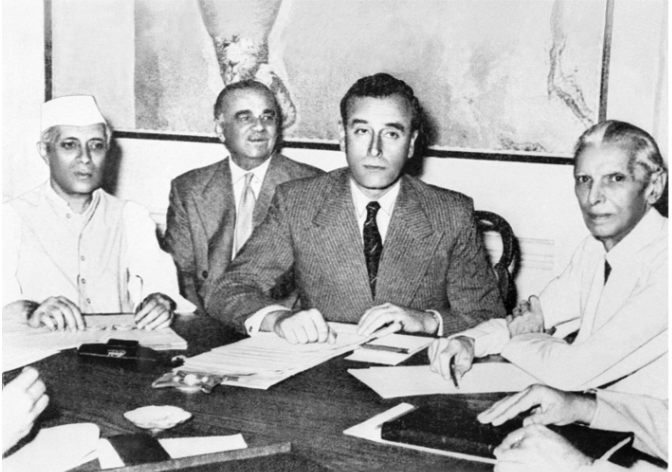Worsening Political Landscape
Mountbatten believed that an earlier independence date would stop the political situation in India from getting worse.
After World War 2, both the United States and the Soviet Union heavily opposed colonialism, which contributed to the international political pressure for Britain to give India independance.

FDR's thoughts on imperalism during and after World War 2
{World War Two Provides the Indo/British Breaking Point, 2017}

After World War 2, the United States and the Soviet Union were the two superpowers of the world
{Britain, the Commonwealth and the End of Empire, 2011}

The AIML opposed the Quit India Movement as it would reslt in no Muslim representation, exacerbating the political instability
{partition of India, 2025}
Leading up to 1947 was increasing instability of government in British India, as the Indian National Congress and the All-India Muslim League were gaining power with respect to the British, and these two sides were extremely polarized and were completely opposed to each other. Thus, Mountbatten assumed that, by marking an earlier date for partition, the instability of the government would drop as the two newly formed nations could each form separate governments isolated from one another.

Nehru, Mountbatten, and Jinnah

An example of the polarization of the two different communities at the time and the insurmountable political instability was when the AIML and INC refused to form an interim government
{Cabinet Mission, Background, Proposals, Reaction, Failure, 2024}